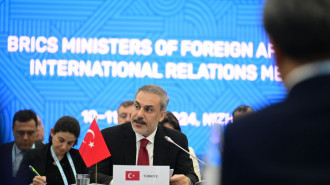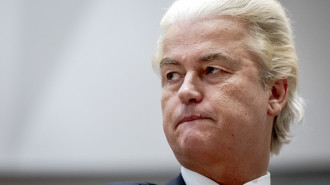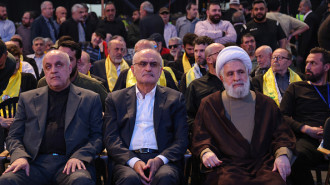Tillerson warns of far-reaching consequences of Qatar crisis
A five-month old crisis pitting a Saudi-led Arab bloc against Qatar could have a major negative impact on the region, the US Secretary of State has warned
Rex Tillerson made the comments on Thursday in Geneva about the worst dispute to hit the Gulf since the formation of the Gulf Co-operation Council [GCC] in 1981.
"The United States remains troubled and concerned about the far-reaching consequences of the Gulf dispute," he said.
"Our message is clear: The GCC is strongest when it is united,"
"We will continue our efforts to open lines of communication to pursue that unity, and as President Trump has said, we remain ready to assist with any mediation efforts," he added.
Saudi Arabia, the United Arab Emirates, Bahrain and Egypt in June announced they had cut all relations with Qatar, accusing Doha of ties to Islamist fundamentalists and Iran.
Qatar has denied the allegations and has rejected the conditions of a proposed settlement to the diplomatic and economic boycott.
Last week, the top US diplomat blamed the Saudi-led quartet for the lack of progress in attempts to mediate the crisis.
"There seems to be a real unwillingness on the part of some of the parties to want to engage," he said, adding: "It's up to the leadership of the quartet when they want to engage with Qatar because Qatar has been very clear - they're ready to engage."
Kuwait has tried to serve as a mediator, with US support, but the parties have yet to sit down face-to-face.
Qatar has warned that the crisis has undermined the fight against the Islamic State group.
The bloc's demands are not entirely clear, but they include the closure of media outlets such as Al Jazeera and The New Arab, mothballing a Turkish military base in Qatar, and payment of "compensation" to Gulf states and Egypt.







 Follow the Middle East's top stories in English at The New Arab on Google News
Follow the Middle East's top stories in English at The New Arab on Google News


